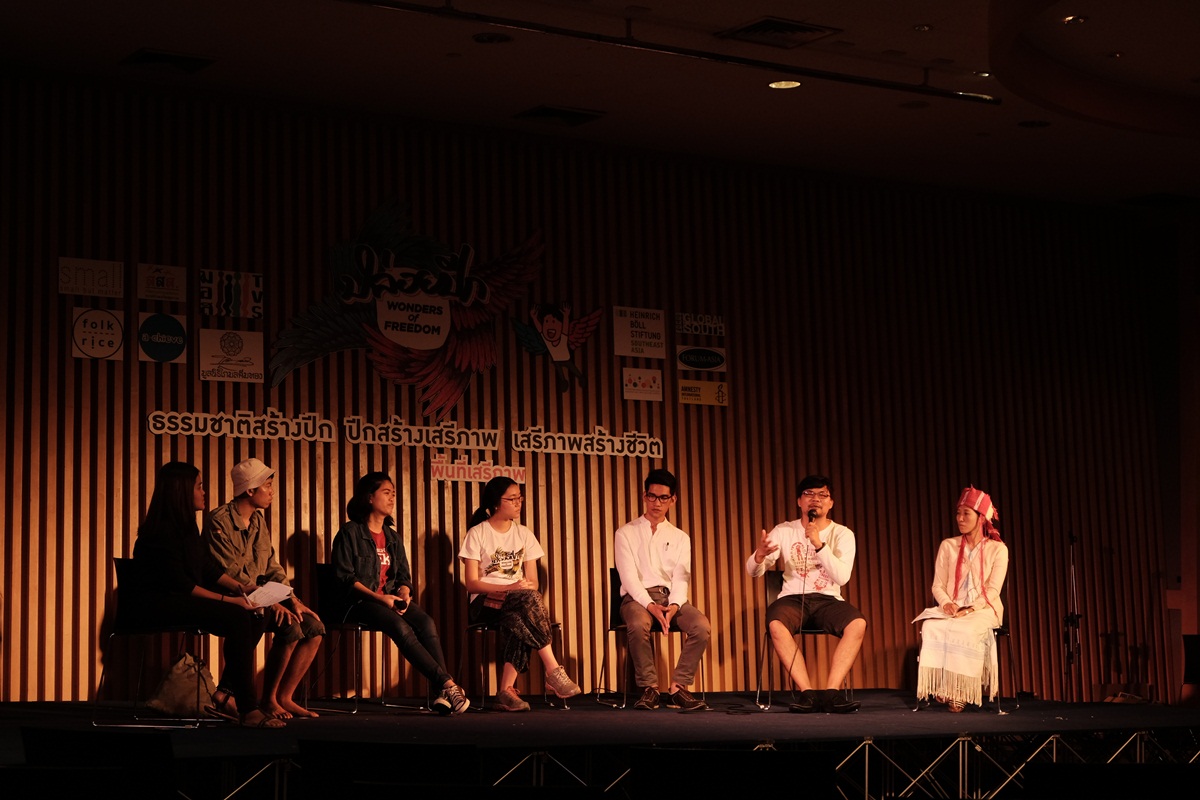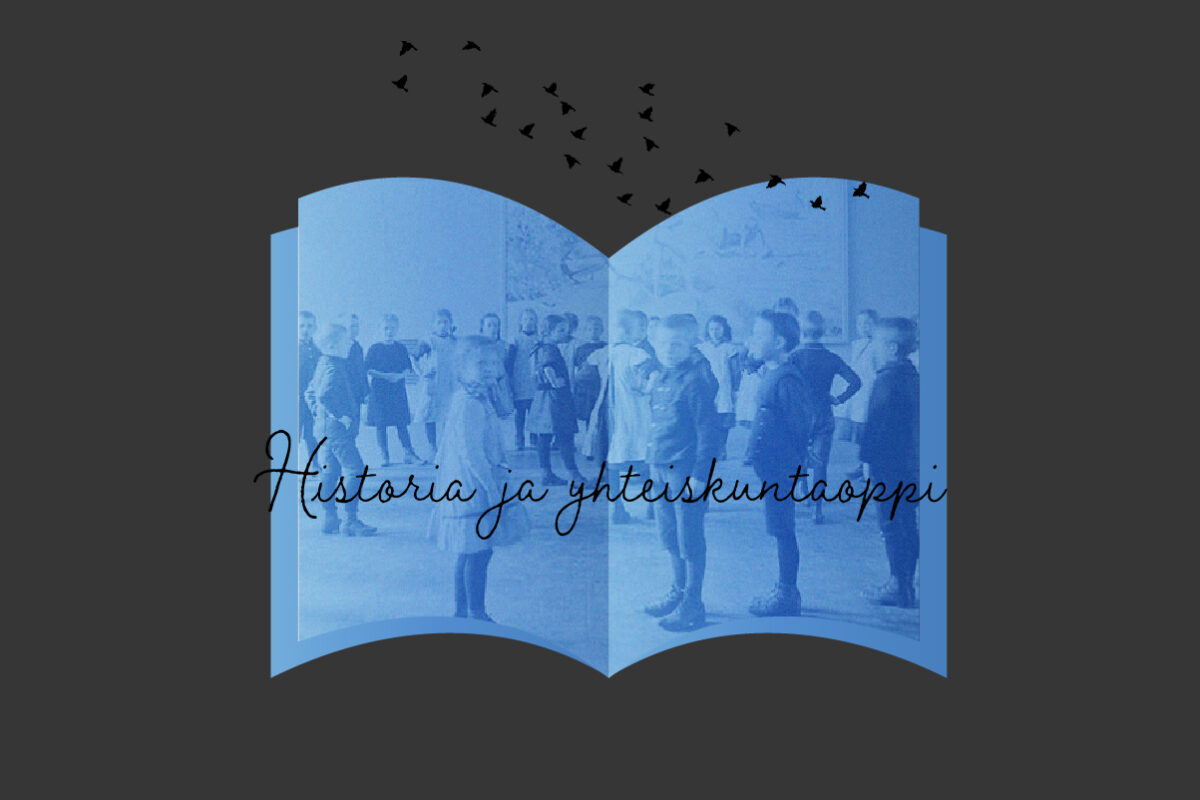Note: This essay was originally published in Thai, as นักเรียนขบถ ร.ศ. 242 (พ.ศ. 2566) online by Way Magazine. Yok, age 15, is the youngest person known to have been charged with violation of Article 112 to date. She was arrested on 28 March in connection with the arrest of a graffiti artist who painted on one of the outer walls of the Grand Palace in Bangkok. From the very beginning, she has challenged authority in ways that unsettle those who hold power. When her remand hearing was held at the Juvenile and Family Court on 29 March, she sat with her back to the bench of judges. After being held for 51 days in juvenile detention, she was released in mid-May in time for the start of the Thai academic year. She had secured a competitive place to enter Grade 10 in the elite Triam Udom Suksa Pattanakarn, but she has continually been denied her right to study. The school expelled her after claiming that attire and hairstyle do not fit their regulations. Her case may seem extreme, but is representative of the dispossession of rights that students, particularly those who dare to rebel, within the Thai educational system. What is most striking, and what Thongchai takes up in this essay, is the strident and vitriolic opposition to Yok expressed by both the school and Thai society. It is as if those who hold power think that pink hair and comfortable, non-uniform shoes are a threat to society, rather than the very authoritarianism that would deny a bright young woman the chance to get an education simply due to the color of her hair. The title refers to the R.E. 130 Rebellion, which was an attempt to create democracy in 1912 C.E., or Royal Era (R.E.) 130, twenty years before the 24 June 1932 transformation from absolute to constitutional democracy. –trans.
If Suan Kularb School had treated me between 1973 and 1975 the way that Yok has been punished by her school and scolded by society today, I would not have had the opportunity to grow and develop. I might have been kicked out before finishing secondary school and never have gone to university. I would not have had the chance to realize that I could be a scholar. I might have been labeled as a waste who would not amount to anything.
This is because in addition to my being a rebel student, I was a ringleader among the rebels in those days.
Luckily, my school in those days was not so foolish and eager to exert power upon its teenage students. There were a fair number of teachers who singled me out and my fellow students who didn’t like me, but a greater number put up with me. There were also people who understood rebellious students like me. Overall, there were people who understood rebel students like me. In any case, I wasn’t attacked and my future was not ruined. Besides, I had many good friends who helped me out by not recording in the attendance log that I skipped class, even though I barely showed my face in class (all of the teachers knew, too). They helped me even though they disagreed with my ideas and my rebellious ways.
Rebellious students are not infectious as if they are germs that can be easily transmitted to others. This is because rebelliousness carries a risk and costly damages. The crucial risk is the ineligibility for exams or the risk of failing them altogether. I nearly failed, barely passing high school.
There are many kinds of rebel students. The first kind of rebel pursues things that are harmful and dangerous to themselves and others, such as drugs or being a gangster. Many people may not consider this behavior to be a kind of rebellion.
The second kind of rebel student seem like the first. Many people live their lives like the first kind of rebel, but they rebel because they cannot bear to be in an authoritarian school filled with meaningless rules. It goes against the very core of being a teenager searching for oneself. They want the thrill and rush of trying new things. Yet the Thai educational system tries to destroy their desire for independence and halt their search for who they are.
The third kind of rebel student launches a clear, straight-up rebellion against the schools and authoritarian education. They rebel to transform. Of course, they may lack understanding of the complexity of the problem (do the adults who criticize Yok have such an understanding?), but are too passionate to put up with the meaningless constriction of authoritarian schools. If no group or organization exists to cloak their struggle in the politeness authoritarianism demands, they will not quietly bow down. Instead, they will take the path of solo rebellion on a whole range of issues.
The methods common to all rebel students include skipping school and rebelling against the rules that form merely the outer shell, not the essential core, of education. For example, the uniform (you may or may not know that this rule is very, very crucial to Thai schools and the Thai system of education, incomparably more so than the education itself). They will challenge the exercise of power which they cannot bear either directly and loudly or quietly and subtly (for example, I pretended to have hurt my toes for a month so that I could wear flip-flops to school).
What differentiates the various rebels is their method of rebellion, their form of expression, and most clearly, what they use their time to do.
If the duty of schools is to indoctrinate young people into being the next generation of authoritarians, then rebel students, especially the third type, like Yok, are more dangerous to schools than the other kinds of rebels, and more dangerous than run-of-the-mill terrible students.
When schools are a safe space for students to try out new things and search for themselves, to learn how they are similar and different than their friends, to learn from taking risks, to learn from their disappointment at school and those around them who do not join their rebellion, they can learn these things safely and with little risk. Within this context, rebel students of the third kind, like Yok, are of very little concern.
We can easily recognize and differentiate the third type of rebel students from the others. But they are the hardest to deal with because they tend to refuse to compromise. They are willing to break rather than bend. They dare to crash head on without seeking to preserve themselves.
But this kind of rebellion contains future potential. This kind of rebel is precisely the kind that good schools in this world want (except those systems in which schools exist to hasten the atrophy of young people’s brains) because they see the potential in such young people. An appropriate way of dealing with them must be found in order to transform the power of daring to confront risk into the power to think, analyze and critique, and the power of desiring something better into the power of creativity.
It is a shame that those in schools within the Thai educational system are terrified and prepared to destroy this kind of rebel student.
I was lucky that I had teachers and friends around me who did not want to destroy me. They even helped me as much as they could without causing problems for themselves. Ringleaders of rebel students in the past had decent opportunities.
Yet in the present, rebel students are berated, misunderstood, and not given opportunity. Many have had criminal cases thrown at them that shrink and constrain their futures until many choose to abandon school and their homes to seek asylum abroad.
This is because the Thai educational system and Thai society are afraid of rebellious youth. They do not know what to do with youth who challenge the authority of the system. Plus, they can only think in the short term and do not know how to manage the present for the future.
Do Thai schools still have space for rebel students full of creativity or are they announcing that they are closing the doors in their faces and dying?
If it is the latter, please realize that such rebel students will not die, but Thai schools will die and be left without breath.





